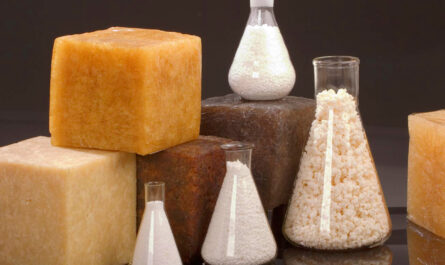Acetic acid, also known as ethanoic acid or vinegar acid, is a colorless liquid organic compound with the chemical formula CH3COOH. It is one of the most important and widely employed chemicals used in daily lives.
Chemical Properties
Acetic acid is a weak acidic compound with a pKa value of 4.76 at room temperature. This makes it relatively weak compared to strong acids like hydrochloric acid or sulfuric acid. However, its weak acidic strength allows it to be used safely in many applications involving organic synthesis, textiles, food processing, and more. Acetic acid exists as an equilibrium mixture of itself and its conjugate base acetate in solution. Its acidity comes from the hydronium ion produced when dissolved in water. At room temperature, acetic acid is a colorless liquid with a characteristic pungent smell and sour taste associated with vinegar.
Major Industrial Uses
Food and Beverage Industry
Acetic acid finds its largest application in the food and beverage industry, primarily in the production of vinegar. Vinegar made from acetic acid provides the characteristic acidic and tart flavor to numerous culinary preparations worldwide. Vinegar is also commonly used as a food preservative and condiment. Acetic acid’s weak acidity allows controlled pH adjustment crucial for fermenting vegetables and fruits to make pickles, sauerkraut, olives, and more. Beyond vinegar, acetic acid’s antimicrobial properties offer natural food safety applications.
Textiles Industry
The textiles industry utilizes acetic acid in dyeing, printing, and finishing processes. Acetic acid serves as an important buffering agent during cotton processing to achieve optimal dye absorption and fixation. It helps regulate pH levels required at different stages. Acetic acid also acts as a natural scouring agent to clean and soften textiles prior to dyeing. Its solvent properties aid in dissolving and dispersing various textile chemicals homogeneously.
Production of Esters
Acetic Acid sees wide usage in organic synthesis for producing industrially important esters. Esterification with alcohols yields ethyl acetate, a green solvent with various applications. Acetic acid also reacts with polyols like glycerol and pentaerythritol to form esters employed as emulsifiers, softeners, lubricants, and more. Production of vinyl acetate ester, a key monomer for synthetic polymers, further exemplifies acetic acid’s importance in chemical syntheses.
Daily Use Products
Acetic acid derivatives find applications beyond industry. Vinegar made from acetic acid continues enhancing household culinary preparations as an all-natural preservative and acidic enhancer. It also sees increasing popularity in natural cleaning products as a non-toxic disinfectant and degreaser. Furthermore, acetic acid serves as the active ingredient and astringent in various over-the-counter products like antiseptics, depilatories, and medicated shaving creams.
Health and Environmental Benefits
While acetic acid is effective against microbes as an antimicrobial agent, its mild acidity makes it non-corrosive and relatively safe for humans when used as directed. Natural acetic acid has advantages over some synthetic antimicrobials, being readily biodegradable and minimally toxic to the ecosystem. Vinegar made from it shows potential in reducing food waste and offers additional nutrients if consumed. Sustainable production from renewable feedstocks further establishes acetic acid as an eco-friendly chemical compared to harsher alternatives.
Acetic acid deserves recognition as one of the most versatile and valuable chemicals in daily life globally. Its numerous applications stem from acidity, antimicrobial properties, and ability to form stable esters. As sustainable sourcing and production methods evolve, acetic acid will likely maintain prominence across industries from food to textiles to personal care products in an eco-friendly manner. Further research also explores novel uses in fields like green energy, biomedicine, and green chemistry. Overall, acetic acid continues enhancing lives through its diverse small but significant roles behind the scenes.
*Note:
1. Source: Coherent Market Insights, Public sources, Desk research
2. We have leveraged AI tools to mine information and compile it




